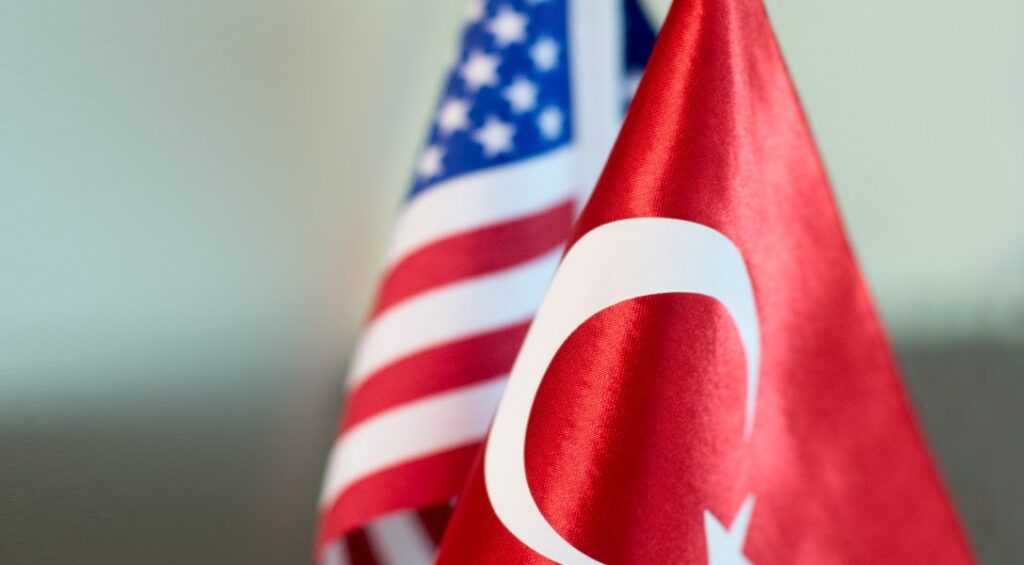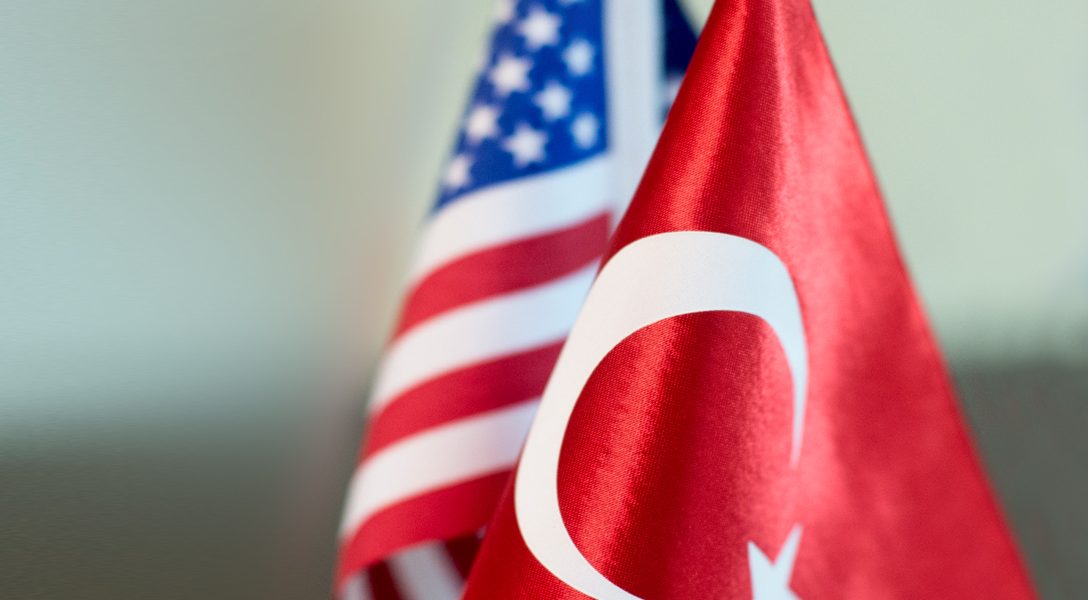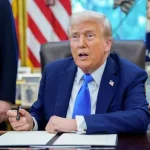
Dr. Yavuz Selim Sarıibrahimoglu, Founding Partner of the Sarıibrahimoglu Law Office, advises Turkish companies and individuals looking to expand their interests in the USA.
Businesses aim to make a profit and achieve sustain–able growth by providing economic stability. For this reason, investment decisions are made by taking into account the political, legal, geographical, demographic structure of the country, and financial market conditions. The stability and future of the investment should be secure as well as the investor’s profit. This stability is most possible in states that provide a strong economic and democratic tradition, such as the USA.
Looking at investments on the global scale can create a blindness to the conditions and business practices of the particular relevant country. Extensive knowledge of local laws, business culture and practices for the country is very critical.
When a foreign investment is considered, the determination of strategies, investment type and financing, market-entry, market research, various feasibility reports on the product, consumer, and market, the country’s political and economic structure, mutual agreements between the country and Turkey, tax, and other incentives provided by the country, will also be on the agenda of any decision-makers.
Forms of investment
We can define the investment methods in three ways as “Investments from Scratch”, “Brown Field Investments”, “Mergers and Acquisitions”.
“Greenfield Investments” are a form of investment created entirely from scratch by bringing outside capital to the country and acquiring a production facility. The hardest part is – while the return is obtained in the long term, the risk and costs are high.
“Brownfield Investments” are a mix of greenfield investments and mergers and acquisitions. One of the parties would typically be a local company operating in the investee country, and a new venture formed by including a partner from another country. This structure is compulsory in some jurisdictions and it’s purpose is for foreign investors to create ongoing relationships with domestic investors.
“Merger & Acquisitions” is a form of investment made by acquiring or merging with a company in an investee country. With a merger, two companies, one of which is foreign, come together on equal terms and become a single company. The acquisition of a company, on the other hand, means that the investing company buys all or most of the shares of a local company in the country where the investment will be made and alienates the company by incorporating it. This form of investment does not cause a capital increase in the country. However, it does involve less risk and cost for the investor and is more advantageous when the rate of return is taken into account.
Developing a strategy
Long-term strategies should be drawn up for sustainable investment abroad. Where long-term strategies and investments are made, this creates a network effect and opens the door to new investments.
There are three main issues with foreign investments. The first is to grow in value chains, to be closer to the source of raw materials and export markets.
The second, is competitiveness. Here, too, both cost and innovation come to the fore. Cost-effective labour is important. For this, they turn to underdeveloped and developing countries. With more innovative businesses, on the contrary, more investors will opt for developed countries, like the USA. The competitiveness comes from the uniqueness of a different product, a different technology.
The third is the issue of market access. At this point, any legal regulation advantages which the jurisdiction can provide are useful. Some countries put legal benefits in place to attract foreign direct investors.
It is foreseen that three motivations will come to the fore for Turkish companies after the pandemic. These are market and portfolio diversification, the convergence of supply chains and digital transformation. In market and portfolio diversification; market, product/service, and sector diversification is important. Again, there will be efforts to bring supply chains closer with factors such as proximity to raw materials and markets, and ease of logistics. Right now, everyone is questioning the new normal way of doing business. Automation in production, online channels and digital infrastructure in sales. It is highly important to identify regions that can attract investment even during the pandemic period, and where you can develop the further investment plans.
Moves towards globalisation
Turkish companies, which have successfully navigated their way through the shocking effects of the pandemic, have accelerated their steps towards globalisation.
According to data from the Ministry of Commerce, foreign direct investments increased by 62% in the third quarter of 2021 when compared to the same period of 2020, reaching a peak of US$560m. The total amount of direct investments made by Turkish investors abroad almost reached US$50 billion from 2003 to 2020. In 2021, there were remarkable increases in investments in the industry and manufacturing sectors, where the service sector was previously far ahead.
Investing abroad requires a certain level of capital and experience, and needs to be planned correctly depending on regional needs and market conditions. Government incentives and tax concessions also facilitate this process. In particular, the US Government shapes the foreign investments of Turkish companies with its strong economy, developed sectors, educated workforce, and the different opportunities offered.
International law companies provide opportunities
Residence and immigration opportunities, investment incentives, and tax advantages make it attractive to invest abroad. Companies prefer direct investment to get a larger share of commercial traffic in global markets. Law firms also have a big role to play in terms of which country will be more advantageous to invest in. International law firms, especially those which specialise in investment planning, tax optimisation, and international commercial disputes, open doors of opportunity all the while helping Turkish companies avoid the worst of the risks.
As an experienced and innovative international law and consultancy company, we direct the investments of Turkish companies in many countries with an experienced team that pulls together lawyers from the different parts of the world. Our dominance of the 21st century legal industry enables us to comprehensively evaluate both regional and multinational agreements. We have provided consultancy to help with the overseas investments of Turkish companies, and we have provided business opportunities for many others.
Investing abroad is now an important agenda item for many of the firms who are based in Turkey. This is especially the case for large-scale groups that have reached a certain capital power and are the leading companies in their sectors and so are actively evaluating foreign investment alternatives with the aim of becoming a regional power. The foreign acquisitions of Turkish companies are increasing every year. In the last ten years, Turkish companies have made 250 acquisitions in foreign markets with a total value of approximately US$50 billion. Infrastructure, energy, tourism, food, chemistry and retail were the sectors that made the most investments.
While the foreign investment flow to the USA, one of the top countries in the index, was US$156 billion in 2020, the period US foreign investment stock reached US$10.8 trillion. While the investment rate in finance and wholesale trade decreased significantly, the greatest investment inflows occurred in the chemicals sector. M&A sales of US assets to foreign investors reached almost US$100 billion in 2020. The country has remained the largest foreign investment destination over the past few years, thanks to its broad consumer base, a predictable and transparent justice system, a productive workforce, a highly developed infrastructure, and a business environment that encourages innovation. In addition, the Foreign Investment Risk Assessment Modernisation Act (FIRRMA), passed in mid-2018, significantly expanded the Foreign Investment Commission’s (CFIUS) review mandate on national security grounds.
Important agreements for investors to be aware of
There are two important agreements which investors should be aware of, which will be different depending on which country they are based in. One of these is the double taxation avoidance agreement, which includes taxation conditions, and the other is the mutual promotion and protection of investments, which includes legal rights and conditions.
1. Double taxation avoidance treaties
Double taxation is when a taxable income is subject to taxation in more than one country, the same income is taxed both in the country where the income is derived and in the country where the income-earner is a resident. In order to eliminate this undesirable situation, countries agree a Double Taxation Agreement (ADR).
Since taxes on income are included in the scope of the agreements, the taxes that are the subject of application for Turkey are income and corporate taxes.
2. Agreement on mutual promotion and protection of investments
In addition to commercial risks, investors may also encounter legal and political risks in the countries they invest in and may incur losses accordingly. Bilateral agreements with important provisions have been signed between states in order to reduce risks and to protect and encourage investments by creating a reliable investment environment.
The Mutual Promotion and Protection of Investments (YKTK) Agreements, are of great importance for investors in a foreign countries. Containing indispensable provisions such as determining the limits of the treatment be applied to the investor by the host country, protecting the fundamental rights and interests of the countries in which they invest on the basis of international law, securing profit transfers, determining the conditions of possible expropriation transactions by the host state, and resorting to international arbitration in case of a dispute. Turkey signed the Agreement on Reciprocal Promotion and Protection of Investments with the US in 1990, which makes Turkey a part of the E-2 Treaty and allows Turkish citizens to obtain the E-2 nonimmigrant classification, and be admitted into the United States when investing a substantial amount of capital in a US business.
Increasing the exports of companies, investing abroad, recognition of Turkish brands in the world, and gaining a place in the world… all are important matters, high on the agenda of the Turkish Government. For this reason, many governmental incentives have been created and successful practices have been developed over the past few years in order to support the private sector by paving the way for strengthening and growing the economy. These range from help for companies doing initial market entry research and those spreading to many countries across the world. ●

Turkish Government incentives for investments abroad:
Increasing the exports of companies, investing abroad, recognition of Turkish brands in the world, and gaining a place in the world… all are important matters on the agenda of the Turkish Government. For this reason, many incentives have been created and successful practices have been developed in order to support the private sector by paving the way for strengthening and growing the economy. These range from help for companies doing initial market entry research and those spreading to many countries across the world.
• Report Support: This is to support the sector, country, and brand-oriented reports that companies purchase in order to create their market entry strategies abroad.
• Overseas Company Acquisition Support: Expenses related to financial and legal consultancy services for investors to acquire companies residing abroad are supported. •
• Advanced Technology Company Acquisition: In order to increase the share of high-tech products in exports and our technology capacity, and to ensure technology transfer, expenses related to financial and legal consultancy services for the acquisition of companies residing abroad with advanced technology are supported.
• Overseas Unit, Brand Registration, and Overseas Promotion Support: In order to enable companies to establish their own distribution channels and carry out promotional activities abroad, the promotional and trademark registration expenses of the companies abroad and the rental expenses of the units opened abroad for the purpose of trading goods.
• Net Rental Expenses
• Promotion Expenses
• Trademark Registration Expenses
• Branding and Turquality
These incentives are closely monitored and provided by the Ministry of Trade with extended services to minimise the risks for Turkish companies and citizens for their further investment plans abroad.

About the author: Dr. Yavuz Selim Sarıibrahimoglu
The founding partner of Sariibrahimoglu Law Office, Dr. Sarıibrahimoglu is a member of Ankara BAR Association, Union of the Turkish Bar Associations, The Turkish-British Commerce and Industry, Sweden Chamber of Commerce, ICC Fraudnet, World Jurist Association (WJA), TUKLAD (Trade Association for the Caribbean and Latin America) and is a Professional Representative before the European Patent and Trademark Office with +45 years of experience and numerous international awards for solving international and inter-company disputes.





